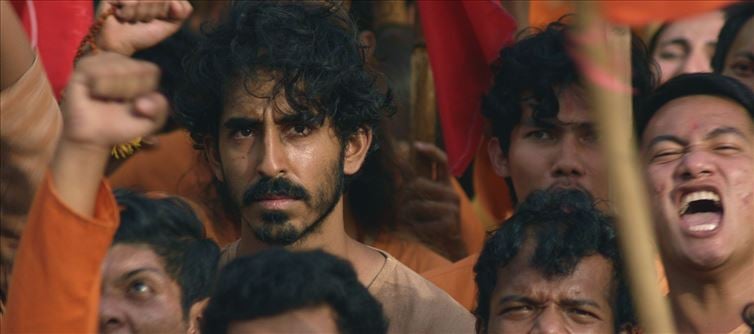
-

Baba Bhaskar
-

Bharatiya Janata Party
-

Cinema
-

citizenship amendment act
-

Dargah Sharif
-

Event
-

Fighter
-

Hindi
-

Hinduism
-

Indian
-

January
-

June
-

king
-

King
-

Komaram Bheem
-

Mosque
-

police
-

Prime Minister
-

ram pothineni
-

RRR
-

RRR Movie
-

Sardar Vallabhai Patel
-

Shakti
-

temple
-

Tollywood
-

Tom Banton
-

Tom Hooper
-

Vaishno Devi
-

Wife
-

yogi
Even though Yatana, the imaginary metropolis of Monkey Man, is modelled by Mumbai, patel is not subtle about his motivations or sources of inspiration. His persona, known only as "Kid," dons an ape mask and sets out on a vindictive quest against the men—deeply ingrained in indian politics—who have mistreated his family. The most important of them is the fictional yogi Baba shakti, who is portrayed by Marakand Deshpande. baba shakti is a highly regarded religious figure whose name in hindi means "power." Even yet, patel uses a small clip of actual demonstrations against prime minister Narendra Modi and the bharatiya janata party (BJP), even if he doesn't mention them by name.
The main argument put forward by the temple's proponents is that the Masjid was constructed on the site of Lord Ram's birth, a central figure in Hindu mythology, a claim that is universally acknowledged to be unsupported by historical evidence. The recent use of the phrase "Jai Shri Ram" (which means "Praise Lord Ram") as a call to action for radical acts of violence against minorities has made the use of hinduism as a weapon in fiction inextricably linked to actual crimes. Notably, Hanuman plays a crucial part as Lord Ram's devoted disciple in the main Hindu epic about Lord ram, the Ramayana, which is a popular influence in indian storytelling.
The Oscar-winning, crossover tollywood movie rrr introduced many Western spectators to the impact of the Ramayana. In the film's conclusion, real-life liberation warriors Alluri Sitaram Raju (played by ram Charan) and komaram bheem (N.T. Rama Rao Jr.) were turned into the avatars of Hanuman and ram, respectively. But there were also some unsettling visuals in that movie.
Similar to ram, Hanuman has recently been invoked in instances of mob violence. A campaign to leave one seat empty at every showing of the Ramayana-based film Adipurush in june 2023 was launched in an attempt to symbolise Hanuman's presence; however, at least one moviegoer apparently missed the memo and was beaten up for taking the vacant seat. Hindu idols are sometimes used as weapons, even in movie theatres. The phrase "Jai Bajrang Bali," which is another name for Hanuman, has also been used in attacks against Muslims and other minorities, similar to "Jai Shri Ram." Modi even adopted it as a punitive catchphrase. For this reason, its inclusion in the movie—a crowd member chants it in support of Kid during a fight—is at best confusing.
In addition to witnessing "Kid" assume the ape god's appearance and hearing memories of his mother (Adithi Kalkunte) telling him stories of Hanuman's valour, Monkey Man also notices that the film incorporates the Ramayana as a structural element. In the first epic, Hanuman helps free Sita, the wife of ram, from the demon king Ravana's grasp. Similar subplots may be found in Monkey Man, when Kid seeks to save an escort named Sita (Sobhita Dhulipala) from a brothel that one of his main targets, the villainous police officer Rana (Sikandar Kher), frequents.
Monkey Man is buoyed by enough political gusto to still ruffle a few feathers.



 click and follow Indiaherald WhatsApp channel
click and follow Indiaherald WhatsApp channel